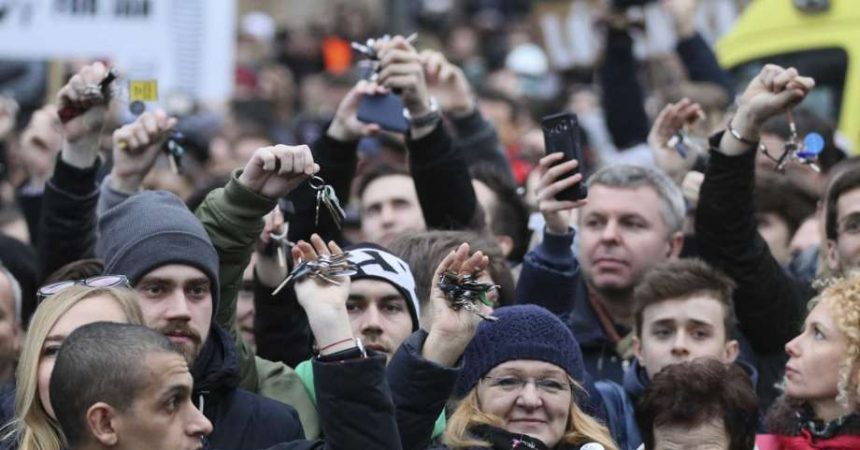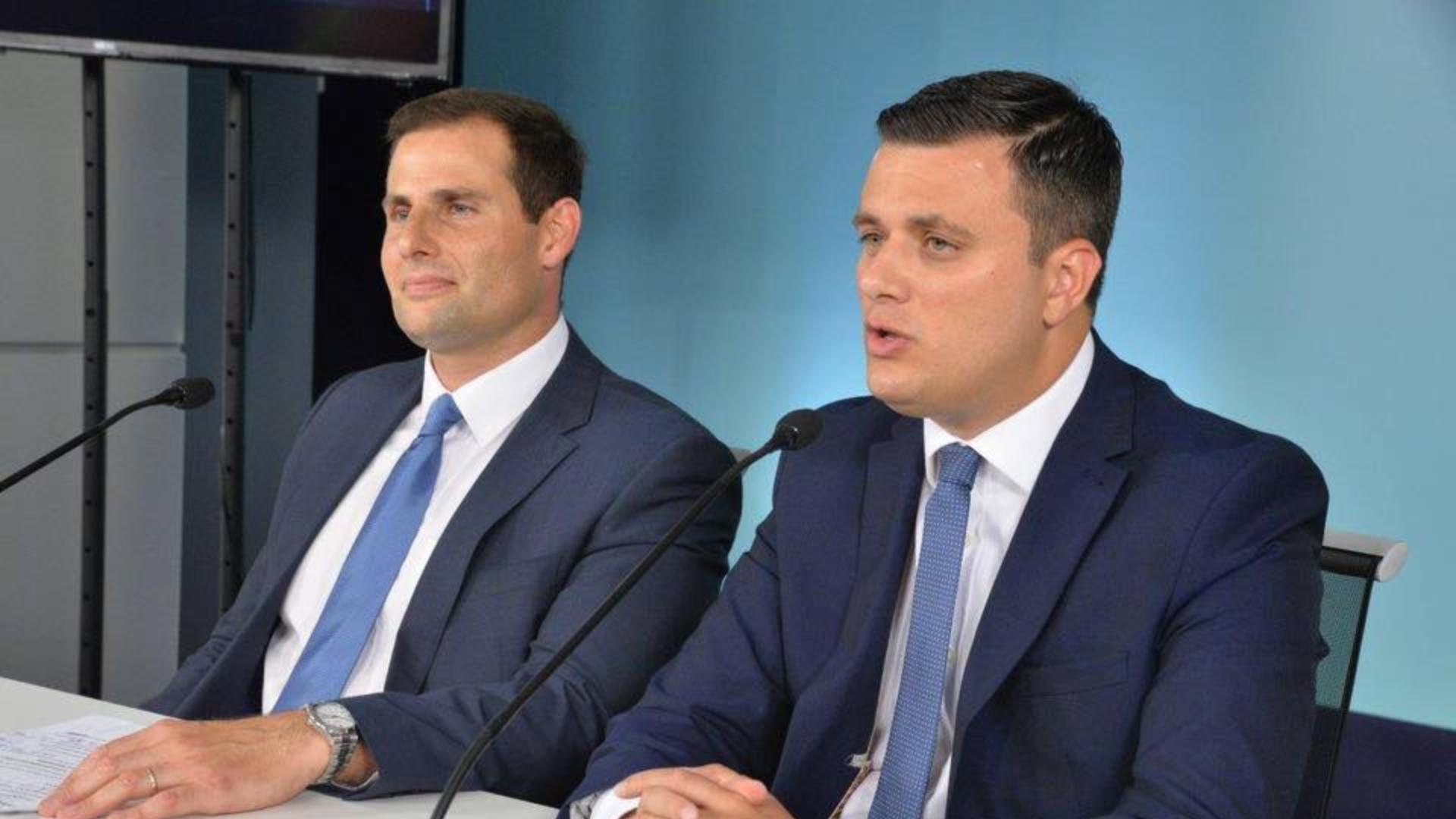Last week in Prague and other Czech cities the keys jingled again. It’s the Czech and Slovak way to tell authorities it’s time to pack and leave.
A symbolic protest inherited from the Velvet Revolution that liberated, back then, Czechoslovakia from Soviet occupation. A message to society to open the doors and protest as well as a message to authorities that their time is up.
Once again the Czechs’ jingled their keys towards the newly elected President Miloš Zeman and the centrist populist party, ANO, leader and potential Prime Minister Andrej Babiš.
The two days of protests in Prague started on Wednesday. People took to the streets to express their displeasure towards Zeman’s inaugural speech, during which he attacked the media organisations that have criticised his stand in relation to EU and migration.
But the most shocking part of his speech was the attack on Ceska Televize the national broadcaster. Several Czech MPs joined the protests to as concerns grow over the state of free media in the central European nation where several influential newspapers are now owned by the political and business elite, including Babiš.
During the protests, recordings of hostile statements against journalists made by politicians, including Zeman, Babiš and far-right party (SPD) leader Tomio Okamura, were aired on loudspeakers as a reminder of the current state of affairs.
The next day the students sounded the keys again. On Thursday a strike in favour of democracy and respect towards the constitution was organised by Czech students across the country. Their main demand is that Zeman should not nominate Babiš as Prime Minister as he faces allegations of subsidy fraud.
Babiš has denied any wrongdoing but a long-running investigation hangs over his head. Babiš allegedly hid ownership of one of his companies a decade ago to win a €2 million subsidy, mostly from European Union funds, meant for small businesses.
The Czechs are following the example set by their Slovak sisters and brothers across the border. The marches in Bratislava since the murder of journalist Jan Kuciak and his partner, together with the pressure of the President Andrej Kiska, led to the resignation of Prime Minister Robert Fico.
In a momentous speech, Kiska revealed that Fico and Speaker of the Slovak Parliament, Andrej Danko, where planning to stage a highly-charged political speech during a press statement on national television RTVS.
Kiska said “the last thing we need is political theatre on television.”
This has led to a government reshuffle but concerns remain, given that the person entrusted to assemble a new government, Peter Pellegrini, is considered to be a close ally and Fico’s puppet, who still holds on tightly to his role as chairperson of the social-democrat party which led the outgoing coalition government.
However, not all European presidents are like the Slovak head of state. Regrettably, most head of states prefer to keep silent and play neutral. Their allegiance is towards the political parties that nominated them rather than to the people they should be representing. Full of pomp in official ceremonies but gutless when it comes to take morally required stands.
The protection of democracy should be at the heart of every honest politician. However, in Malta and abroad, politicians seem to forget this (or at least most of them). Even if politicians are not corrupt, defending corrupt colleagues makes them an accomplice.
While my keys jingle I remind you to close the door behind.













